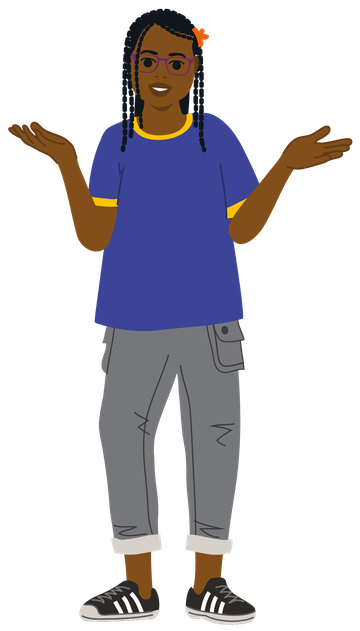Human Papillomavirus (HPV)
Key facts
- HPV, or human papillomavirus, is a common virus that can cause cancers later in life.
- The HPV vaccine can protect you from these cancers.
- Nearly everyone who is not vaccinated will get HPV at some point in their lives, but not all infections will result in cancer.
What is HPV?
HPV means 'human papillomavirus.' HPV infections are very common. Nearly everyone will get HPV at some point in their lives if they haven’t had the vaccine. HPV is spread through intimate skin-to-skin contact. You can get HPV by having vaginal, anal, or oral sex with someone who has the virus, even if they don't have signs or symptoms. Many will not even know if they have it. There are over 100 types of this virus. Most of them won’t harm you and go away on their own. However, some types of HPV can cause warts on your genitals (private parts) and can also cause cancer.
Why should I be worried about HPV?
HPV infections can cause cervical cancer, which affects a part of a woman's body called the womb. A woman dies from this cancer every two minutes somewhere in the world. Some HPV infections can also lead to other cancers, such as those affecting the vulva, vagina, penis, anus, or the back of the throat, including the base of the tongue and tonsils. People with weaker immune systems, like those living with HIV, are at a higher risk of getting HPV.
How do I know if I have HPV?
Many people with HPV don't show any symptoms, so they may not even realise they have it. That's why getting checked is really important. Cervical cancer screening, also known as a 'pap smear' or 'smear test,' checks if everything is okay in a woman’s cervix. Doctors recommend that women have their first check by age 30 and then repeat it every 5 to 10 years to ensure good health. Since girls with HIV are at a higher risk of getting HPV, they should start getting checked at 25 and go every 3 to 5 years.
Why should I be vaccinated?
The HPV vaccine is an injection that protects you from the ‘human papillomavirus’ (HPV). The vaccine is given to 9–14-year-olds to stop the spread of HPV and to lower the chances of getting cancer when you grow up. Due to the high-risk HPV poses to women, most countries have prioritised vaccination for girls. However, some countries have included boys in vaccination programmes as well. So make sure that you get vaccinated when the vaccine is offered to you! HPV vaccine is most effective when given before a person is exposed to the virus.
Additional reasons why I should get vaccinated against HPV.
- Cervical cancer is the second most common cancer affecting women in East and Southern Africa and in most other countries, but the HPV vaccine can prevent it. It's a safe way to protect your health.
- HPV vaccines are safe and have been given to over 80 million people in 121 countries since 2006!
- It's best to get the vaccine between 9-14 years old, before becoming sexually active, to ensure early protection. However, even if you've already started having sex, it's still important to get vaccinated.
- Since we can't predict who might get cancer, it's a good idea for everyone to get the HPV vaccination. This is especially crucial for people living with HIV, as they have an increased risk.
- Some people may be afraid of injections, but nurses or doctors can help you relax, making it a less scary or painful experience.
- Most people have no issues with the vaccine. Some may experience a slightly sore arm or swelling at the injection site, but it usually resolves quickly.
Having the HPV vaccine is your choice. No one can force you to get it, but it's a smart decision because it protects you from HPV and reduces your risk of certain cancers later in life. It is also important to understand that the vaccine prevents the spread of HPV, but it doesn’t stop other sexually transmitted infections, HIV or pregnancy, so it is important to use condoms when having sex and to get regular medical check-ups.

Average Rating: ☆ ☆ ☆ ☆ ☆ (1 reviews)

